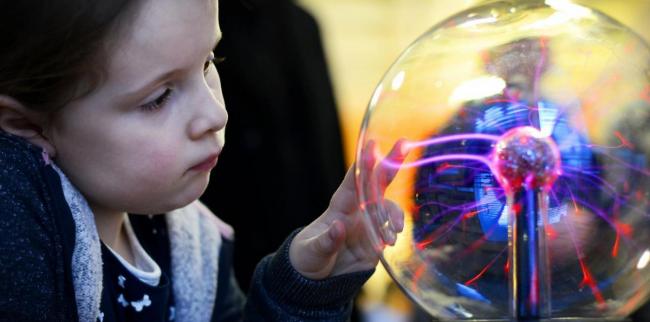THE wonders of the universe will be revealed this weekend in a space-themed open day at Oxford University.
More than 1,000 people of all ages are set to join talks, interactive events and observing while learning about astronomy at Stargazing Oxford 2019 this Saturday.
Hosted by the university’s department of physics, astronomers will be on hand to answer curious questions such as 'Is there life on other planets?', 'What happened at the very beginning of the universe?' and 'What constellations can you see at night this month?'
ALSO READ: The rare super blood wolf moon
Dr Sian Tedaldi, the outreach programmes manager at Oxford Physics, said: “This is our biggest event of the year with activities for all ages.
"Over 100 members of the department will be there to share their enthusiasm for astronomy and space-science.
“We are particularly excited about our new activities, including an opportunity to take a journey through a three-dimensional installation of the Orion constellation.”
Other new activities for this year include an opportunity to be guided through the multi-coloured universe in an immersive VR (Virtual Reality) experience.
People can also take part in AstroCrafts, where they can get creative with astronomy-themed craft activities as well as star shows in the inflatable planetarium.

Radio observing will be available to do where visitors can find neutral hydrogen in the Milky Way through remote observation with the Roswitha Wetton telescope.
Professors and researchers from the university will be giving talks from 2pm to 8pm including, Niranjan Thatte – who will be speaking about extremely large telescopes – and Luke Jew, who will be speaking about the oldest light in the universe.
Dr Tedaldi said: “2019 is a significant year as it provides an exciting opportunity to look back at space exploration, with the 50th year anniversary of the Moon landing, as well as to showcase the work being done by scientists within Oxford and in the future.”
ALSO READ: Bacteria under the spotlight at Oxford University Museum of Natural History
In the evening, experts from Oxfordshire amateur astronomy groups will help people observe the night sky using professional-standard telescopes.
Talks, workshops and the planetarium will take place every hour but observing will only take place after dark.
All activities will be held at the Denys Wilkinson Building on Keble Road.
Daytime activities will be held from 2pm to 8pm while stargazing activities such as observing will be held from 6-9pm depending on how cloudy it is.
Entry is free and organisers have emphasised that the venue can only accommodate a certain amount of people so scientists will keep people waiting in queues entertained.






Comments: Our rules
We want our comments to be a lively and valuable part of our community - a place where readers can debate and engage with the most important local issues. The ability to comment on our stories is a privilege, not a right, however, and that privilege may be withdrawn if it is abused or misused.
Please report any comments that break our rules.
Read the rules here